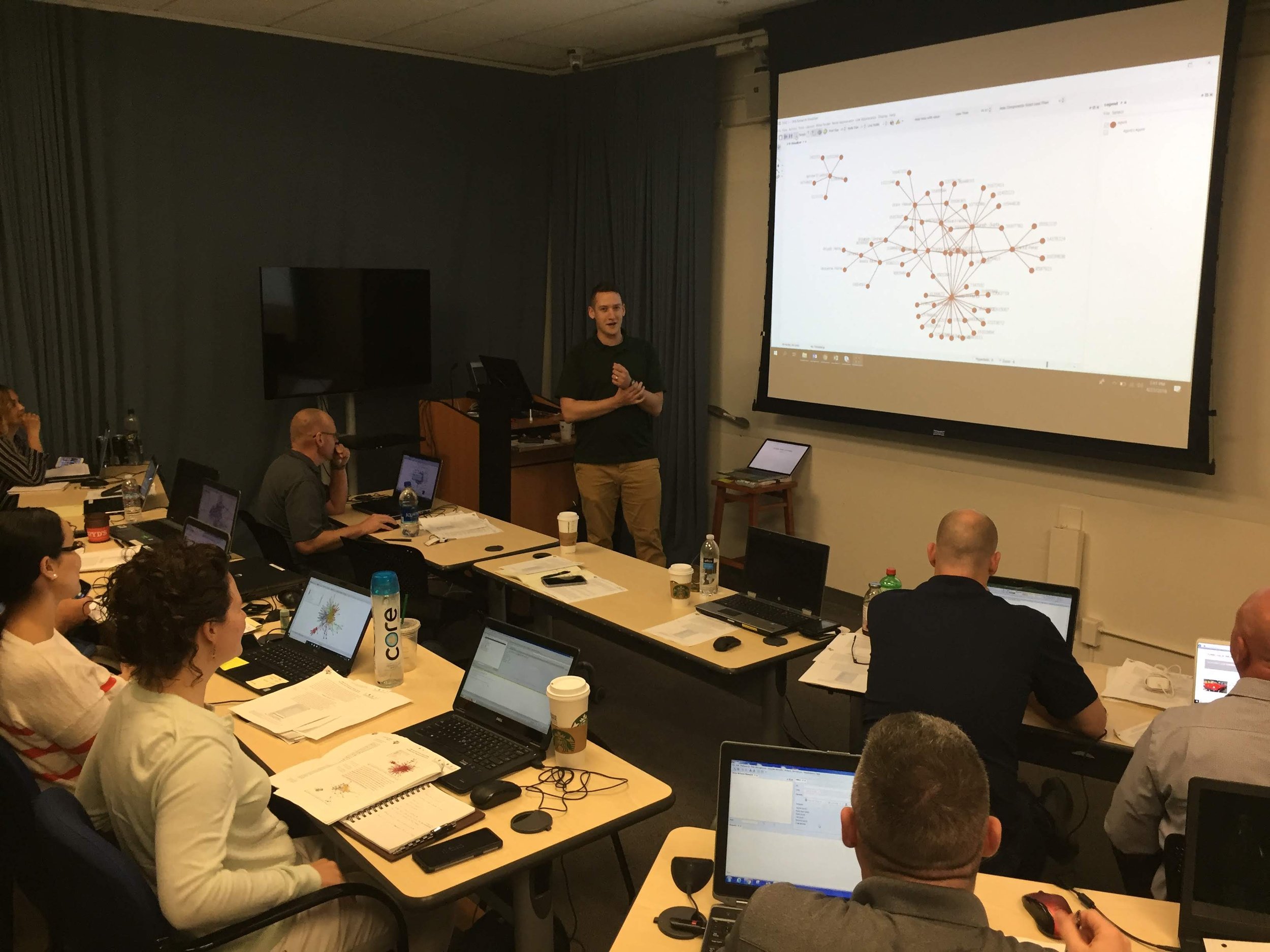8 Ways Intelligence Analysts Help Your Law Enforcement Agency
Often, the tax-paying public and even police leaders are more informed by movies and television about what an intelligence analyst can do for their agency. If asked, police and public safety administrators could probably name two or three benefits to having an intelligence function at their agency, maybe more. With limited resources, what intelligence analysts offer can often seem more a luxury than a necessity. Better understanding what analysts offer an investigative agency makes the case for moving them up in priority. Here are eight reasons to have intelligence analysts at your law enforcement agency:
1. Helps solve criminal investigations.
This is the most obvious reason to employ intelligence analysts. While it may seem obvious, intelligence analysts develop a variety of intelligence products to assist investigators in detecting, preventing, and responding to criminal activities. Analytical personnel initiate inquiries, conduct information searches, and can act as a central point for information gathered. Analysts work with investigators to achieve great things.
2. Increases the ability to prosecute criminals.
While analysts are largely thought of in the investigation phase, don’t underestimate their ability to get successful prosecutions. Analysts are in the business of making others understand, whether they are investigators, prosecutors, juries, or even the public. The products they make can help explain complicated crimes. Intelligence analysts develop summary tables, charts, maps, and other graphics for use in a grand jury or trial. Analysts may provide factual and expert testimony and organize evidence for presentation in court.
3. Supports the chief executive and the agency’s mission.
By maximizing the analytical function, the chief executive can obtain important information and intelligence to possibly prevent future criminal activities. Analysts can prepare materials to assist in allocating resources; develop budget and resource requests; and help prepare departmental reports, investigative briefings, and press releases.
4. Proactively informs law enforcement officers of crime trends and develops threat, vulnerability, and risk assessments.
Intelligence analysts and crime analysts allow law enforcement officers to better understand their operating environment. The analytical function provides support to tactical and strategic operations. Analysts synthesize crime reports, identify crime hot spots, develop crime bulletins and summaries, study serial crime data, and forecast future crime. The analytical function develops proactive intelligence products that assess the potential threats of crime groups or criminal activities and recommends methods to intervene in these threats. This combination leads to increased officer safety and better enforcement outcomes.
5. Trains law enforcement and other intelligence personnel.
Analytical staff develop course modules on intelligence and analytic methods and provide awareness and methodology training to agency members, executives, and managers. Law enforcement officers trained in the analyst’s capabilities and methodologies are better consumers of intelligence. This means the analyst's important information will be more efficiently understood, or even anticipated.
6. Assists in the development of computerized databases to organize information and intelligence.
Anyone who has worked with data knows you get out what you put in. A well-maintained database will yield great results and useful insights. Analysts help in the development and maintenance of systems that collect, collate, retrieve, and disseminate information. Analytical staff participate in departmental testing and acquisition of investigative, intelligence, and analytical software.
7. Fosters meaningful relationships with other law enforcement personnel.
Having your own intelligence analysts creates another avenue of cooperation and dialogue between agencies. Partnerships build capacity. A well-networked analyst is a force to be reckoned with at your agency. Maybe they don’t have access to a tool or they are not well-versed in a particular area, but they will know someone who does. Analytical staff interact with other law enforcement agencies and build relationships with peers, allowing them to quickly obtain information and efficiently assist in multijurisdictional or complex cases. Through contact with national programs and professional associations, analysts can ascertain national issues that may affect local agencies.
8. Ensures compliance with local, state, tribal, and federal laws and regulations.
Analytical personnel provide expertise and knowledge in the development of protocols to ensure compliance with local, state, tribal, and federal laws and rules that govern intelligence sharing, privacy, and civil liberties. Analysts must often walk the line of what information is permissible to collect and what is not. Having been trained, analysts can provide important insight and recommendations on such matters and help keep your agency on the right side of the law and regulation.
These are eight reasons to establish and invest in your analysts. Can you have an effective law enforcement agency without it? Yes, but seeing the benefits, how could you want to? Analysts make law enforcement agencies more effective.


